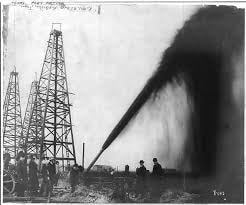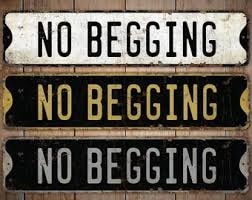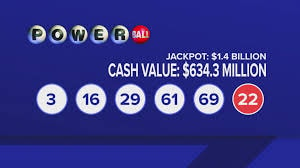
Let’s cut the crap—if you’re in wholesale real estate without access to real funds, you’re just a spectator in the game. The market doesn’t care how good your smile is or how many hustle memes you post. When the right investment property pops up, you need capital ready to drop—fast. The real players aren’t begging banks for funding or chasing down “maybe” investors. They’ve got private funds lined up, ready to roll, because in this business, speed kills deals and hesitation kills profits.
The Hard Truth: Your Wholesaling “Business” is Just a Side Hustle Without Cash Backing

Here’s the street reality: Without capital, your “business” is just a part-time gig you brag about at BBQs. That hot property you found? Worthless if you can’t close before another real estate investor or cash buyer grabs it. Sometimes you need to move before your buyers list can catch up—other times you want to keep a project for yourself and stack a bigger profit. Either way, if you don’t have funding opportunities lined up, you’ll watch good properties slip through your fingers while someone else cashes the check.
If you’re still learning how wholesaling works overall, this free course walks through the full process so you know exactly what to do next.
Forget TV Drama: Who Private Lenders Really Are in the Real World
Private lenders aren’t the cartoon villains you’ve seen on TV. They’re not hiding in smoky rooms or demanding shady side deals. These are regular real estate investors, business owners, and even friends of friends who want their funds working harder than a savings account will allow. They’re not banks—no dragging through financial statements, no endless credit checks. They just want to know the market, the property, and how you’re protecting their investment. They could be a teacher, an engineer, or even a company director—all looking for better funding plays.
The Untapped Cash Sitting Right Under Your Nose
Here’s what most rookies miss: your future private funds don’t have to come from someone with stacks of cash lying around. Most investors have their capital tied up in home equity, retirement accounts, or other investment strategies. They can pull from a HELOC, a self-directed IRA, or other funding sources you never thought to ask about. This is money they already have working somewhere else—you just need to offer them a better profit potential with the right property and a rock-solid plan.
Why Funding Isn’t Optional—It’s Survival

In wholesale real estate, the difference between closing a deal and watching it get snatched is all about having funding ready before you even spot the right properties. You can’t wait until you’ve got a signed contract to start calling companies or firms for help—that’s how you lose to faster investors. Whether it’s angel investors, venture capitalists, or even credit unions, your network of funding opportunities should be set up long before your next lead hits. Without ready funds, even a low risk investment property becomes impossible to secure.
Tapping Unseen Sources of Capital

Most rookies overlook the hard money and private funds scene because they think it’s only for tech startups. Truth? Plenty of investment properties and projects are bankrolled by small businesses or most business owners looking for a solid profit without the headache of managing properties themselves. Some pull capital from financing tools like bridge loans, others from equity in other properties they already own. Even development firms and companies outside the real estate industry will diversify into investment strategies if the market conditions and property numbers check out.
The Role of Due Diligence in Attracting Private Funds
Want serious investors to trust you with their money? Your due diligence game has to be airtight. That means running the numbers on buying costs, selling potential, repair estimates, and the market trajectory before you pitch. Private funding sources—whether it’s hard money, angel investors, or cash buyers—aren’t handing over funds without proof your investment is sound. That’s where resources like property reports, contractor bids, and comparable houses come in. Show them you’ve thought through every investment angle, and you’ll position yourself as a business partner worth betting on.
Why Venture Capital Isn’t Just for Tech Geeks
When people hear venture capital, they think Silicon Valley and hoodie-wearing app builders. But some venture capital firms are sniffing around wholesale real estate and investment properties because they see the returns. They’ve got capital to place, and if you can show them how your investment strategies turn a right property into serious profit, they’ll listen.
The trick? Position your deals like mini-businesses. Have your numbers locked in, your due diligence done, and your funding structure ready to go. The money’s out there; you just have to stop thinking small.
Private Funds vs. Banks: Choose Your Battles
Here’s the ugly truth—banks move slower than molasses in January, and they’ll drown you in paperwork. Private funds and angel investors? They’ll move in days if they trust the deal. No corporate red tape. No time consuming underwriting process. Just cash when you need it.
Sure, banks have their place—especially if you’re looking to buying long-term properties and you’ve got enough funds to play their game. But in wholesaling? The faster you can close, the better your shot at locking in the right properties before another real estate investor swoops in.
The Low Risk Myth
Some newbies think finding low risk investments means avoiding action. Wrong. “Low risk” in this game means knowing the market, understanding your funding source, and structuring the deal so everyone wins. Private lenders, credit unions, and even small businesses looking to invest want returns, but they also want stability. That’s where your due diligence comes in.
Run the comps. Double-check your potential property rehab costs. Make sure your financial statements tell the same story your pitch does. If you can back every number, you’ll build a rep as someone who doesn’t just talk deals—they close them.
How Many Investors You Really Need

You don’t need “many investors” in the beginning—you just need the right one. One lender with deep funds can be worth more than a dozen tire-kickers. Target venture capitalists, experienced real estate investors, and even companies outside real estate that are hunting for investment diversity.
Over time, stack your funding opportunities so you’re not dependent on a single source. This is how pros avoid cash crunches and how rookies get eaten alive.
Why Your Funding Mix Matters More Than You Think
If you’re serious about wholesale real estate, you can’t rely on one type of funding. Pros mix it up—tapping private funds, hard money, credit unions, and even angel investors to keep deals moving. This isn’t about begging for cash—it’s about stacking funding opportunities so you’re never stuck when the right property drops in your lap.
A smart real estate investor knows how to use capital like a tool, not a lifeline. That means you’re not just chasing money—you’re building a system that keeps your investment properties and projects funded without gaps.
How to Get Investors Hooked on Your Deals
The fastest way to lose a meeting with venture capitalists or seasoned investors is to walk in without a plan. You need a rock-solid business plan backed by clean financial statements and proof you’ve done your due diligence.
Don’t just tell them the numbers—show them. Map out your investment strategies, your expected profit, and exactly how their funds will be protected. Whether you’re pitching to small businesses, individual investors, or large companies, you have to speak their language: risk, return, and timelines.
Low Risk Doesn’t Mean Low Hustle
Too many rookies hear “low risk” and think they can coast. Wrong. It means knowing your market, your buyers, and the process inside out. If you can identify right properties fast, secure funding in days, and close without delays, you’ll be the investor everyone wants to work with.
Keep in mind: deals move at the speed of trust. You want many investors fighting to give you their funds, not the other way around. That only happens when you’re consistent, you deliver, and you never waste someone’s time.
Turning One Property Into Multiple Opportunities
When you land a killer investment property, don’t just think about the flip. Think multiple properties, think development, think portfolio. The right investment can lead to repeat business with the same investors, more referrals from friends in the industry, and enough funding leverage to take on bigger plays.
In this game, one solid win isn’t the goal—it’s the stepping stone. That’s how most business owners in this space scale from chasing deals to having deals chase them.
How to Sell Without Begging

If you’re out here trying to sell your deal like you’re pushing a busted TV at a garage sale, you’re already done. In wholesale real estate, you don’t push junk—you pitch opportunities. That’s how you get buyers lined up and ready with cash in hand.
The key? Have the right properties and the right property data in your pocket. When you roll in with clean comps, solid numbers, and proof the investment property is a no-brainer, you stop being a salesperson and start being a deal-maker.
Why Grants and Creative Funding Still Matter
Most rookies skip over grants and niche funding opportunities because they think it’s “not for real estate.” Wrong. There are city programs, state incentives, and private funds waiting for someone with the hustle to apply. It’s not about charity—it’s about stacking your capital sources so you never stall on a deal.
And if you’re smart, you’ll know when to tap into venture capital firms for scale and when to keep it lean with credit unions or angel investors. Different projects demand different money.
Leverage the Exchange Game
Ever heard of a 1031 exchange? It’s a tax code gift that lets you roll profits from one property into another without paying Uncle Sam—yet. The best investors use it to grow their investment fast without bleeding profit.
But this game isn’t for the lazy. You’ve got to know the process, meet the timelines, and have your next deal lined up before you close the first. Screw up, and you’ll be paying more in taxes than you made in profit.
Know Your Industry and the People Who Run It
This industry is small. People talk. If you ghost an investor, botch a funding promise, or leave a seller hanging, your name will spread for all the wrong reasons. Protect your rep like it’s your last dollar.
That means doing due diligence every time, avoiding debt that eats your margins, and never overpromising just to “lock a deal.” The goal is long-term funding relationships with buyers, banks, and companies that keep your phone buzzing.
Qualify Your Money Before You Chase It
Stop wasting time pitching deals to people who can’t even qualify for the kind of funding you need. Whether it’s banks, credit unions, or venture capitalists, you’ve got to ask the hard questions upfront. Do they have the funds ready? Can they move fast? Are they into your type of investment?
Too many rookies get dazzled by “big promises” from many investors who vanish when it’s time to wire cash. Your job is to filter fast—if they can’t show financial statements or prove they’ve closed on multiple properties, they’re out.
Why the Fund is King

Here’s a truth most gurus skip: control the fund, control the deal flow. If you’ve got a dedicated fund—whether from private funds, angel investors, or pooled capital from most business owners you know—you’ll never be at the mercy of flaky backers.
That means you can buy the right property, take the time to do your due diligence, and still move like a shark in a feeding frenzy when a hot house hits the market.
Resources Beat Raw Cash
Money’s just paper. The real power is in resources—the network, the market intel, and the companies that can pull a deal together in days, not months. If you’ve got resources lined up—title companies, inspectors, lenders—you’re untouchable.
This is where you use every idea you’ve got: trade skills for equity, offer partnerships to businesses that want in, and leverage connections with directors or entities that control properties other people can’t touch.
How to Sell Without Selling Out
There’s a difference between making a deal and looking desperate. You want buyers to chase your properties, not the other way around. That comes from knowing your strategy, using examples that show return on investment, and keeping low risk front and center.
And when you’ve got enough funds in the bank, you stop making decisions from fear—and start calling the shots like a real investor in the wholesale real estate game.
Making the Numbers Work Before You Sign the Deal

If you want a private lender to take you seriously, you’ve got to show more than a smile and a handshake. That means having a business plan that screams, “I know how to make money.” The plan should include details about the company you run (or are starting), the income property you’re targeting, and the funding you’ll use to close the gap.
Sometimes the numbers mean you’ve got to invest your own sweat equity before asking for someone else’s cash. That’s when you go after the fund that fits your deal — whether it’s through an exchange of equity for capital or straight financing from someone who trusts your hustle. And don’t forget, investments can come in small bites too — think multiple properties over time instead of one “swing for the fences” project.
Show, Don’t Tell: Give Them an Example
If a lender’s on the fence, hit them with an example of a project you’ve pulled off (or one you’ve analyzed in detail). They don’t need a fairy tale — they need proof you can handle houses, juggle debt, and walk away with a profit. And yes, that means you’ve got to run the numbers on every house you touch like your life depends on it.
Know Who You’re Working For
At the end of the day, you’re not just chasing money; you’re serving homeowners who have a problem that you can solve. That could mean helping them avoid foreclosure, getting them a quick sale so they can pay off debts, or speeding up the purchasing process so they can move on. Every lender worth their salt wants to know you’ve got a heart for solving problems — not just lining your pockets.
Building Resources That Last

Money comes and goes, but your resources stay with you if you’re smart. Build relationships with contractors, attorneys, and agents who can move a deal from “idea” to “closed” without drama. It makes sense to stack these connections before you even begin hunting for your next seller. That’s part of your strategy — staying ready so you don’t have to get ready.
How to Turn “No” into “Yes” Without Burning Bridges
Every wholesale real estate hustler has heard the word “no” more than they’d like. But the smart ones treat “no” like a speed bump, not a dead end. If a lender says your deal is too risky, dig into their concerns with due diligence. Maybe they don’t like the low risk you’ve priced in (or lack thereof), or maybe they think your investment strategies aren’t tested enough. Either way, come back with the data to prove them wrong.
Tap into the Right Networks
Private lenders rarely hang out where the general public does. They’re in rooms with angel investors, venture capitalists, and people with private funds looking for better returns than the stock market. They talk shop with small businesses, shake hands with most business owners who’ve already built wealth, and keep tabs on right properties that can move quickly. If you’re serious, you need to work these circles until your face and name are as familiar as your handshake.
Keep the Math Tight and the Pitch Tighter
Your financial statements aren’t just paperwork — they’re your weapon in the pitch meeting. Show them how the funding opportunities you’re offering beat other investment properties they’ve seen. When you speak their language — capital, funds, investment, and profit — you’re no longer just another investor; you’re a closer.
Respect the Clock

Private money isn’t patient money. These lenders know the time consuming nature of buying and selling assets, but they also expect you to move fast. That’s why you need enough funds lined up, multiple buyers on speed dial, and a market plan that keeps the pipeline moving. If you waste their time, you won’t get a second shot.
Keep Relationships Warm for the Long Game
In wholesale real estate, the lenders who fund your deals today can fuel your empire tomorrow — if you treat them right. Even when you’re not working on a project together, stay in touch. Share market updates, fresh funding opportunities, or even insights into investment strategies that might interest them. A lender who sees you as a steady source of value will back your deals when others get cold feet.
Protect Your Reputation Like It’s Cash

In this game, your credibility is capital. Deliver on promises, follow through on every deal, and make sure your due diligence is bulletproof. One missed closing or botched funding can cost you more than a single transaction — it can shut you out of an entire network of investors. Treat every interaction like it’s an audition for the next big project.
Your Edge: Speed, Smarts, and Strategy
The right property at the right time is only part of the equation. You also need the ability to secure funds fast, negotiate like a pro, and position your business so lenders see you as low maintenance and high return. Whether you’re dealing with private funds, angel investors, or venture capital firms, your edge comes from knowing your numbers, reading the market, and executing without hesitation.
Final Word: Don’t Just Find Money — Build Power
Finding a private lender isn’t just about getting money to close your next property. It’s about building a network of investors, businesses, and funding partners that will keep your pipeline alive for years. Stack enough wins, and you won’t just be chasing funding — you’ll be the one calling the shots, choosing the projects, and deciding which investment properties make the cut.
© 2025 All Rights Reserved – PropertyMOB agency
